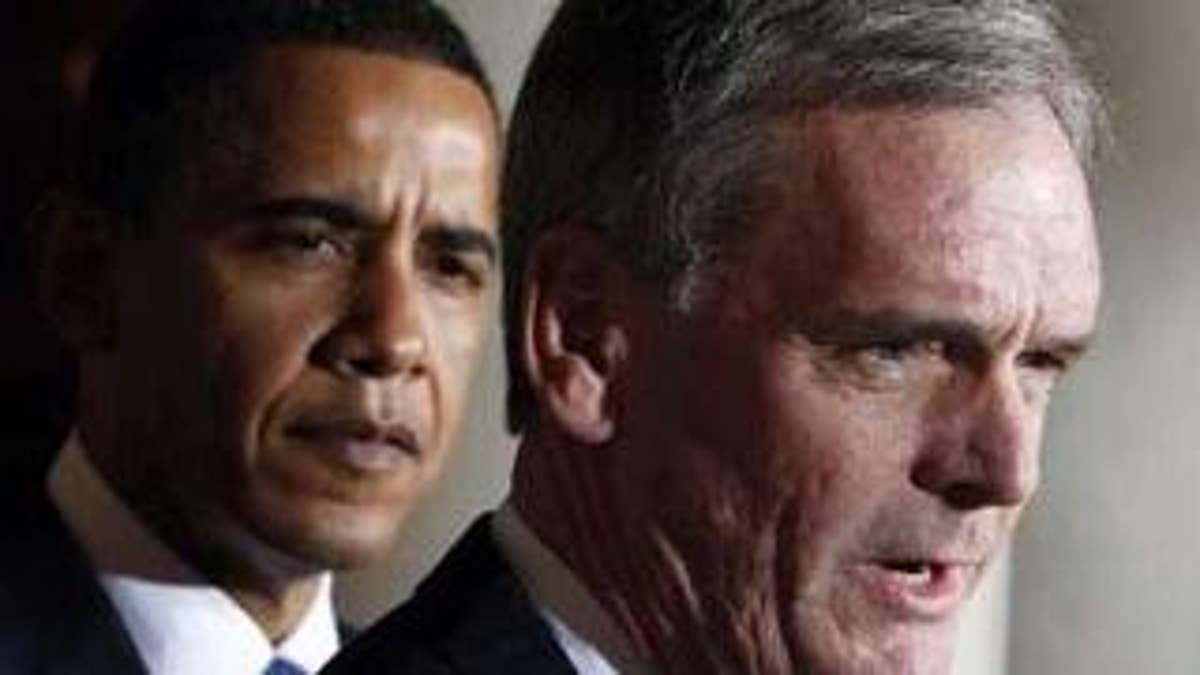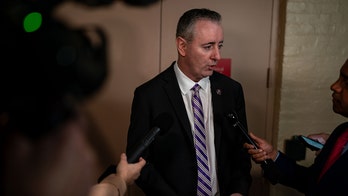
At first, the relationship between President Obama and Sen. Judd Gregg looked like love at first sight, proof that opposites do attract.
Obama is a 47-year-old left-leaning Democrat who believes in the power of government to solve people's problems. Gregg is a 61-year-old New Hampshire Republican who advocated limited government and made millions through business investments.
Their unlikely partnership seemed destined to transcend partisan lines and symbolize the change that Obama promised to bring to Washington.
But Gregg, who was Obama's commerce secretary nominee until withdrawing his name from consideration, has emerged as the toughest critic of the president's handling of the economy and has helped galvanize Republican opposition to Obama's policies.
He warned on Monday that Obama's $3.6 trillion budget proposal will lead to unsustainable debt levels and send the country on a fiscal path resembling that of a "banana republic."
Gregg kept up his attacks on Obama's budget request Saturday in the weekly Republican radio address, saying the path to prosperity is not the excessive spending proposed by the president but limited spending that holds down the growth of government, taxes and debt.
The senator said Obama's proposals "represent an extraordinary move of our government to the left."
He said Obama "is not trying to hide this; in fact, he is very forthright in stating that he believes that by greatly expanding the spending, the taxing and the borrowing of our government, this will lead us to prosperity."
Like most relationships, this one began with mutual admiration, respect and trust, with flowery compliments flowing between each other.
At their first public appearance together a week-and-a-half before Valentine's Day, Obama called Gregg "a master of reaching across the aisle to get things done. He will be an astounding addition, a trusted voice in my Cabinet and an able and competent ambassador ... I can think of no finer steward for our nation's commerce."
In turn, Gregg praised Obama's economic stimulus proposal to stabilize the economic slide and pull the country out of recession as an "extraordinarily bold, aggressive, effective and comprehensive plan."
"This is not a time for partisanship," Gregg said then. "This is not a time when we should stand in our ideological corners and shout at each other. This is a time to govern and govern well."
But what began as a union with so much potential and hope to change Washington ended unceremoniously last month during a meeting at the White House.
Asked why they met at the time, a senior Obama administration official told FOX News: "It's kind of tacky to break up with your girlfriend over the phone."
Gregg's rhetoric toward Obama then was still amicable as he cited "irresolvable conflicts" over issues like the $787 billion economic stimulus package and a plan by the White House to assert greater control over the 2010 census.
"This was a great honor, and I had felt that I could bring some views and ideas that would assist him in governing during this difficult time," he said in a statement then. "I especially admire his willingness to reach across the aisle."
Gregg told reporters that he has followed his own path for 30 years but after joining the Obama team, felt that he couldn't be himself.
After agreeing to become the commerce chief, Gregg said without going into specifics that he began to feel uncomfortable with his role and feared it would hinder his success.
Now Gregg has turned his failed appointment by the Obama team into an opportunity to become one of the president's most outspoken and public antagonists.
In his radio address Saturday, Gregg countered each of Obama's policy principles:
-- "It is the individual American who creates prosperity and good jobs, not the government."
-- "We believe that you create energy independence not by sticking Americans with a brand new national sales tax on everyone's electric bill, but by expanding the production of American energy ... while also conserving more."
--"We also believe you improve everyone's health care not by nationalizing the health care system and putting the government between you and your doctor, but by assuring that every American has access to quality health insurance and choices in health care."
He said the United States "has an exceptional history of one generation passing on to the next generation a more prosperous and stronger country, but that tradition is being put at risk."
The Associated Press contributed to this report.




